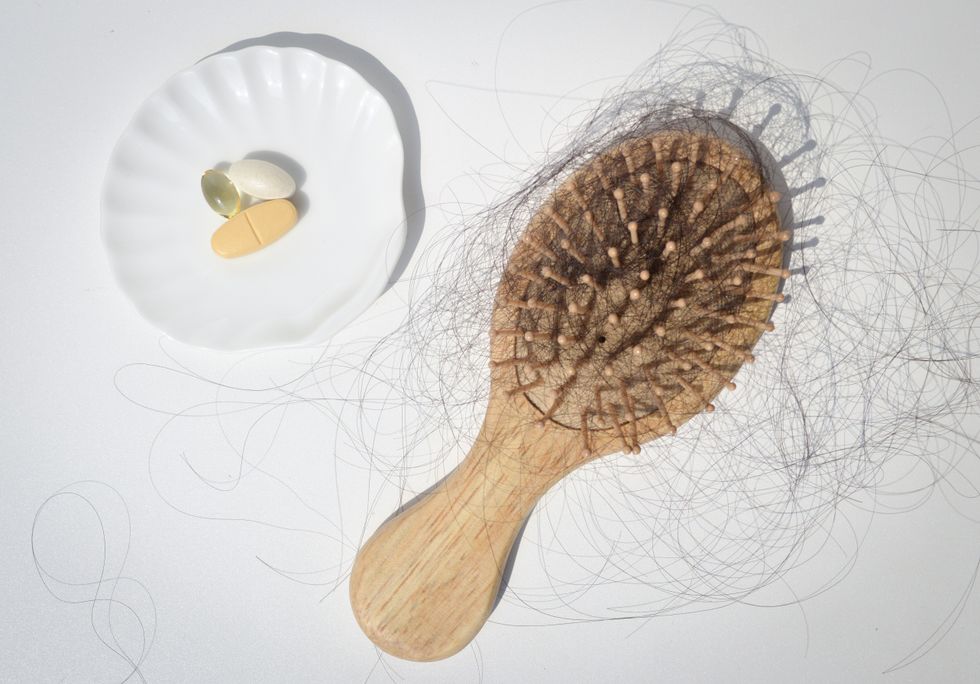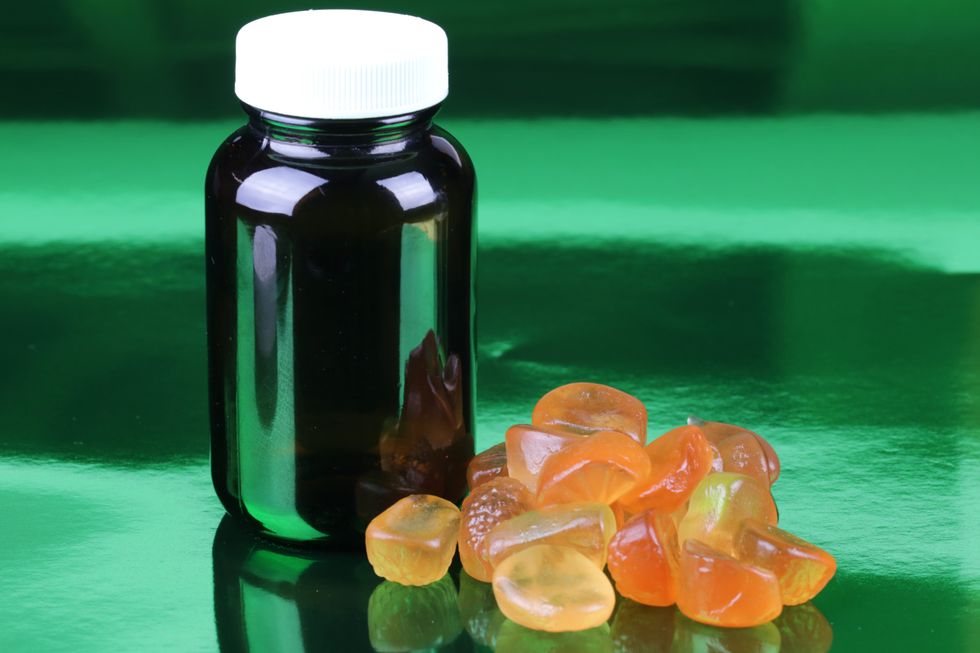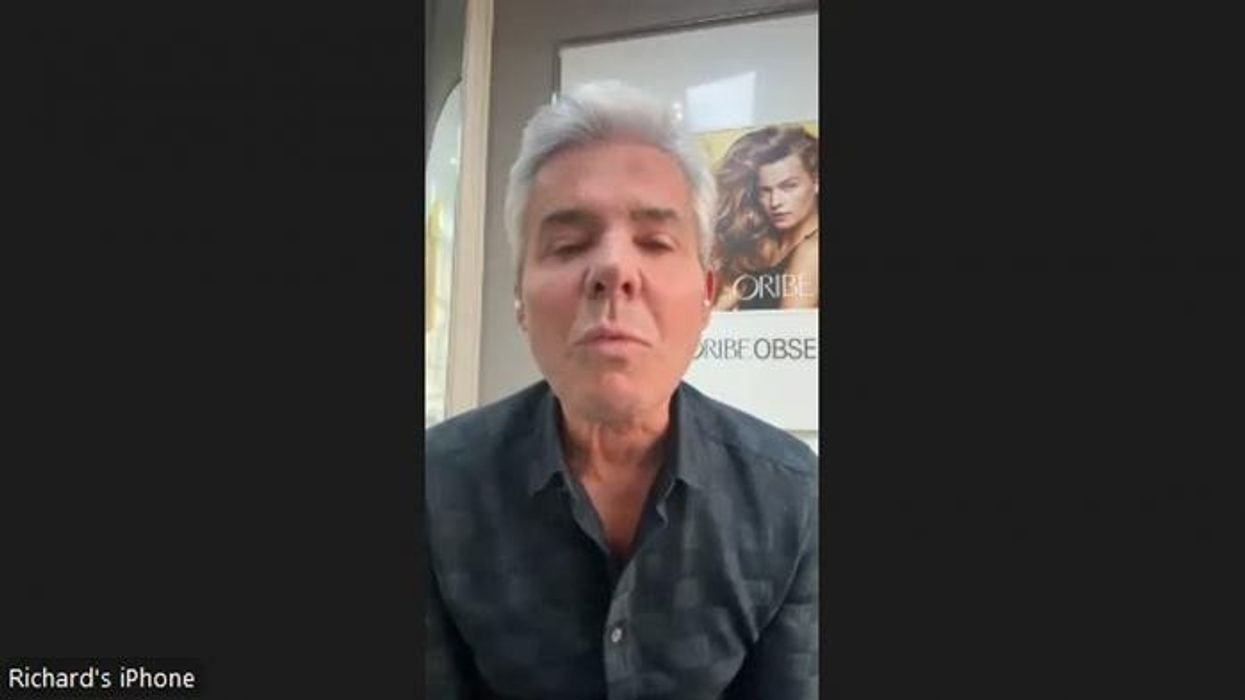Pharmacist names common vitamin deficiencies behind hair loss - but 'more is not better'
More often than not, Britons turn to supplements to prevent hair loss
Don't Miss
Most Read
Hair thinning affects a staggering 85 per cent of British men and 40 per cent of women by their 50th birthday, new research has discovered.
As a result, it comes as no surprise that deep anxieties exist surrounding hair loss across Britain.
Women demonstrate greater unease overall, with 59 per cent expressing concern about potential hair loss compared to 53 per cent of men, experts at LloydsPharmacy Online Doctor found.
In fact, 66 per cent of women would consider taking supplements to enhance hair growth, alongside 55 per cent of men.

Deficiencies in Vitamin D, B12, iron, and biotin can cause hair loss
|GETTY
While androgenic alopecia (hereditary hair loss) is the most common cause of hair loss worldwide, it can be attributed to several other factors, including age, poor hair care, childbirth, illness, or other stressors, cancer treatment, and more.
A pharmacist has identified several key deficiencies that can also contribute to hair loss.
"Deficiencies in Vitamin D, B12, iron, and biotin, to name a few, can all contribute to hair loss, so correcting these through appropriate repletion may improve overall hair health," Sheena Bagga explained."
The American Academy of Dermatology confirmed this, stating: "If you're not getting enough of one or more of these, you can have noticeable hair loss."
Regrowth is possible, though, "when your body gets enough of the missing nutrients".
LATEST DEVELOPMENTS
Currently, 17 per cent of British adults take vitamins specifically formulated to prevent hair loss despite a concerning knowledge gap amongst the British public regarding vitamin overdosing.
The research by LloydsPharmacy Online Doctor discovered that 64 per cent of women and 65 per cent of men remain unaware that excessive vitamin consumption can trigger hair loss.
More alarmingly, 44 per cent of those surveyed believed that exceeding recommended vitamin doses would produce superior results, sparking worrying health risks.
"Excessive intake of certain vitamins, such as vitamin A or selenium, has been linked to hair shedding, and more is not necessarily better with vitamins," Sheena warned.
She advised: "Anyone experiencing noticeable hair thinning or loss should seek advice from their GP to identify the underlying cause to determine the most appropriate course of treatment."

Excessive vitamin consumption can cause more harm than good
|GETTY
The most popular supplement amongst Britons is biotin, taken by 25 per cent of those surveyed, followed equally by vitamin D at 25 per cent and collagen at 15 per cent. Seven per cent consume specialised hair gummies containing vitamin blends.
Regarding vitamin D, the pharmacist warned: "A lot of people don't realise vitamin D plays a key role in the hair growth cycle, and deficiency has been associated with various types of hair loss including telogen effluvium and alopecia areata."
Iron proves particularly vital for women, with low ferritin levels common among females, vegetarians, and individuals avoiding red meat. The NHS recommends 14.8mg daily for women between the ages of 19 and 49.
Meanwhile, vitamin A presents unique risks, since both deficiency and excess have the potential to damage hair health. Instead of supplement form, experts advised seeking the nutrient from natural sources such as dairy products, oily fish, and liver.
Before making any major changes to your lifestyle, including vitamin consumption, it is always best to consult your GP to make a wholly informed decision.











